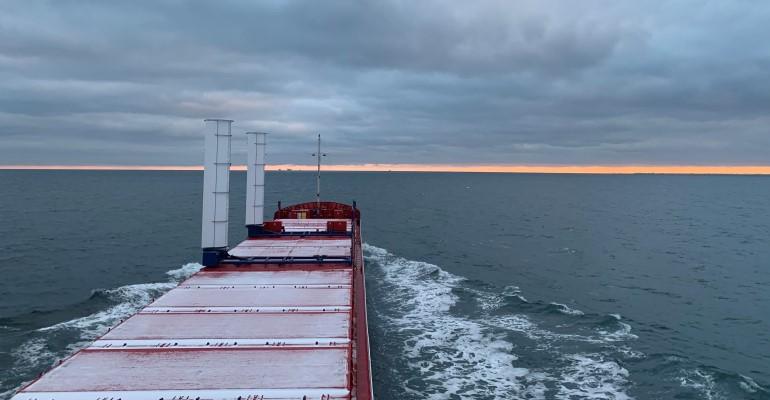Russia, the world’s largest wheat exporter, will raise its wheat export duty by almost 32%, the government said, as the country seeks to curb exports in the face of high inflation and potential supply crunch due to the poor state of winter crops.
The duty has been climbing since mid-August from a level as low as 257 roubles ($2.60) to 4,871.5 roubles per ton, but so far has failed to hinder exports, which have been proceeding at a near record pace in recent months.
The duty hike also comes as leaked data from the state weather forecasting agency showed that over 37% of winter crops are in poor condition or have not sprouted due to a low level of moisture in the ground.
This compares with only 4% of crops in bad condition last year and marks the worst level ever recorded.
Deputy Prime Minister Dmitry Patrushev, the top official in charge of agriculture, said in comments on the data the outlook for next year was difficult to predict, although the situation was not critical yet. Leading consultancies have stuck to their forecasts for now.
“This is not quite a drama yet, these are data from around Nov. 20 and the condition of the crops may have already improved,” said Sovecon’s Andrei Sizov, saying that he maintained his wheat harvest forecast of 81.6 million tons.
“We interpret this situation not so much as bad, but rather as exceptionally uncertain,” said IKAR’s consultancy’s Dmitry Rylko, whose 2025 wheat forecast stands at 79-89 million tons. He said he disagreed with the weather agency’s methodology for defining the crop’s condition.
European traders said they suspected the Russian authorities decided to raise export taxes as Russian wheat continues to be offered very cheaply, possibly the cheapest high-volume origin with export shipments still running at a very high level.
“Despite the Russian export taxes, export quotas, minimum export price and apparent punishment of companies which have broken the minimum export price, Russian wheat continues to be offered in export markets very cheaply in large volumes,” one German trader said.
Traders said the move would potentially be supportive for world prices but only if Russian export prices increase. According to Sovecon, the export prices were largely flat in the last two weeks with export volumes gradually falling.
LOW PRICES
Russia, unhappy about low global prices for wheat, has set an unofficial price floor for its wheat, according to Reuters sources, and sought to remove intermediaries from international trade. The country is also fighting inflation, with price growth for some staple foods in double digits this year.
Traders said Russian 12.5% protein wheat for December/January delivery was late this week around $223-$227 a ton on a free-on-board (FOB) basis, among the cheapest in the world, and down from $226-$231 late last week.
The Agriculture Ministry calculated the duty based on an indicative price of $233 per ton.
Last month, Russia cut the wheat export quota that will be applied in the second part of the export season from Feb. 15 to June 30, 2025, by two-thirds to 11 million metric tons.
Analysts from Rusagrotrans, Russia’s flagship grain rail carrier, predicted that as a result of the curbs and bad weather, Russian wheat exports will fall to 41-42 million tons in the 2024/25 season from 55.5 million in the previous season.
They estimated that so far this season Russia exported a record 29 million tons of wheat to global markets, implying that exports are set to slow down sharply even before the quota is implemented in February.
Wheat constitutes about 90% of all winter crops in Russia. In an officially published report, the weather forecasting agency said lack of moisture was observed in bread basket regions in the south of Russia as well as in the central area.
“If moisture accumulation does not occur by winter, we risk not just having a poor harvest, but no harvest at all,” said farmer Igor Rozhnov from Black Earth Voronezh region.
Source: Reuters (Reporting by Olga Popova, Writing by Gleb Bryanski, Additional reporting by Michael Hogan in Hamburg; Editing by Mark Potter and David Evans)





